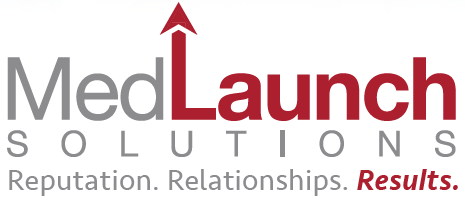Olympic champions don’t do it alone. Behind every top athlete is a coach. Primary care physicians are trained in basic diagnosis and treatment of common illnesses and medical conditions. More complex and time-intensive diagnostic procedures are usually referred to specialists. As a specialist, you can provide substantial value to PCPs by educating them and keeping them current with developments in your field. Be the coach by providing PCPs with valuable information for their patients, and ultimately building a relationship that will result in referrals to your specialty practice for years to come. Remember – clinical excellence isn’t the gold standard for winning referrals. It’s the starting point. Referrals arrive when relationships are strong.
There are number of ways to provide education to your potential referral sources and cement a referral relationship with them. In all cases, remember the goal is to officer them something of value. Be clear and concise about who you are, what you do, and how you can help their patients. Here are 4 tips:
1. Hire a physician liaison. Physicians often complain, “I didn’t become a doctor to become a sales or marketing person.” Hiring a personable, professional Physician Liaison to represent your practice and provide education about your specialty to referring providers enables you to build critical physician relationships without having to become the “marketer”. But remember, sending an underutilized staff member out to pass out donuts and marketing materials won’t have much impact. Hire a skilled sales person who can provide education and build relationships with the referring physicians and their staff.
2. Lunch-and-learns or in-service trainings for referring practices’ staff on topics relevant to their patients can be very effective. Speak at a lunch or a staff meetings on something that is valuable to them. Use this time to educate them about how you can help their patients. These types of events are excellent opportunities for you to position yourself as the expert and answer questions from other providers and staff. When you take time out of your day to educate them on your specialty, you become the “go to” for questions in your field.
3. Use social media as a platform to share your knowledge. Social media is a powerful tool for educating potential patients and referral sources. You can use Facebook, LinkedIn and Twitter to help establish credibility and build awareness of your expertise. Start a blog where you provide wellness tips and discuss your specialty and your practice. Post it on your website and promote it on social media. As a bonus, all of these things can organically improve your SEO, which can help your practice’s placement in Google searches for your specialty. The bottom line is that, often, social media can serve as a starting point for developing a professional or patient relationship.
4. Consider the power of good PR. What is your expertise and is it newsworthy? “Earned media” is free marketing for your practice. It’s also a great way to increase your brand exposure and enhance your reputation. The key to getting your story picked up by local media is to be sure it is newsworthy. Content ideas include news about your providers learning a new cutting-edge procedure, your philanthropic involvement, bringing on new providers, a ribbon cutting at a new office location or health awareness months. Local media can aide in educating your future patients and referral sources and building awareness of your practice.
And don’t forget to educate the office personnel! The reality is, it’s not always the physician that makes the final decision about where the patients are referred to. Frequently it’s a nurse, a Practice Manager or a Referral Coordinator that is left to make the decision. Educating these individuals on what you can do to help their patients is a great way to build rapport with a referring practice.
Lastly, consider education as a MUCH BETTER alternative to gift giving. Think about the impact that bag of popcorn, a box of cookies or a dozen donuts really has. I’m not suggesting that whatever you sent your referring providers for the holidays last year was inappropriate, but remember that it’s what you do as a specialist every day to help their patients that cements the relationship. EDUCATE! EDUCATE! EDUCATE! Medical providers want to give their patients the best care possible. By helping them to improve their own patient care, you become a trusted provider. (plus the cookies hardly support health and usually get eaten long before the provider sees them anyway!)
Position yourself as an expert in your specialty by continually raising the bar and educating the PCPs in your community. In turn, you will establish credibility for you and your practice and referral sources will look to you for help with their patients. The result? A gold medal in relationship marketing and a robust patient pipeline that ensures long-term success for your practice!
GO FOR THE GOLD!
Ashley

